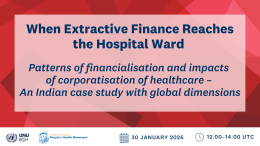Money is often used as a weapon against trafficked individuals, keeping them dependent on their trafficker. Perpetrators undermine financial stability in numerous ways, including by hijacking an individuals’ financial identity for money laundering or other criminal purposes. This financial abuse has numerous long-term impacts for survivors including limiting access to bank accounts, preventing access to housing options, and damaging their credit histories, all of which complicate financial recovery.
Regaining financial stability can be extremely difficult after being trafficked. “A Survivor’s Guide to Money,” a new book by sex trafficking survivor leader and The Avery Center co-founder Megan Lundstrom, focuses on practical lessons for survivors of modern slavery and human trafficking in their path to financial independence. The first-of-its kind, this book’s evidence-based framework is specifically designed to help survivors understand the financial abuse they have endured and help them to set goals in their journey to financial wellness.
On 12 May, the Liechtenstein Initiative for Finance Against Slavery and Trafficking’s Survivor Inclusion Initiative hosted a virtual launch for this book, featuring expert speakers from survivor support organizations and the financial sector who discussed the economic abuses involved in trafficking, the role of financial institutions in providing access to financial services, and the long journey to financial recovery for survivors.
A recording of the event can be access here.




